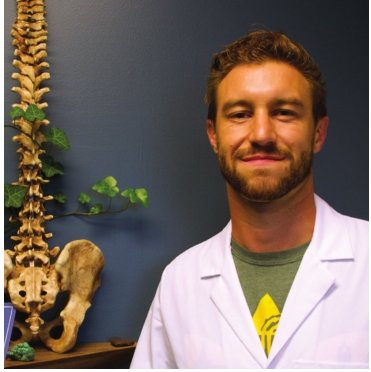“Backpacks are commonly too heavily loaded with school supplies, or too loaded with textbooks,” Moore said. He emphasized an equally common, though less noticeable, problem: improper backpack dimensions.
If the measurements of the bag aren’t a proper fit for a child’s torso, it can cause painful stress on the shoulders and neck, Moore said. He finds that an optimal backpack stays thinner than the child’s torso, and sags no further than 4 inches below their waist.
Should a backpack fail both of these qualifications, the child’s body becomes victim to what chiropractors calls “biomechanical torque.”
“One quick way to explain biomechanical torque in regard to backpacks is they tend to cause the head to come forward, and have the shoulders slouch forward,” Moore said. “These things all tend to put us in a self-defeated posture.”
But let’s say your child has no choice and the school isn’t savvy to tablets or laptops — which can weigh a lot less compared to a mountain of textbooks. The key, according to Moore, is keeping the weight “close to the core.”
“If the weight is non-negotiable for whatever reason, make sure their backpack is really tight against their core. Turn it into a workout, rather than something that’s causing postural distortion,” Moore said.
He posits that making gravity work for you, instead of against you, is ideal when dealing with an overstuffed backpack.
“If they hug it and tighten it with the straps against their core; they’re standing up straight and they’re actually beating gravity. Allow it to work to their advantage.”
Children’s cellphone usage can also hurt posture. “Text neck,” as Moore calls it, is the postural position of the neck that is perpetually craned forward — something avid phone gazers, or even bookworms, are surely familiar with. While not an immediately alarming health risk, Moore says it negatively impacts a child’s self esteem.
When attempting to correct the problem, he finds it foolish to expect children to kick cell phones. Instead, he prefers to teach them how to get some relief from daily neck aches.
“It’s a physical thing. Maybe your neck will get a little bit sore, but it’s actually changing your mindset and changing your self-esteem as well, which is important for parents thinking about their kids.”
Moore believes in a connection between good posture and confidence. With good posture it becomes easier for children to connect with their classmates.
“It’s very hard — if the shoulders are slouched down in the head forward — for kids to feel confident about themselves,” Moore said. “If they can be aware of their posture and just hold themselves up a little more upright, it usually gives them the confidence and self-esteem to interact and connect with more kids.”
According to Moore, there’s a lot of posture improvement to be had in a school setting by adjusting how a child, or anyone for that matter, sits in their chair.
Even the stiffest, painfully anti-ergonomic chairs can be combated by sitting position techniques, in order to provide more comfort throughout the school day.
“You should sit all the way back in the chair and have a little bit of a backward angle, around 110-degree angle,” Moore said. “The chair will work more for you. Because there’s a little bit of an angle, gravity can take over and you don’t have to fight it so badly.”
Though Moore is filled with advice, and his chiropractic practice can offer relief from back pain, it’s not quite the right office for extreme postural distortion or medical issues. Moore still suggests the emergency room for more extreme medical situations.
“It’s not exactly like you got in a car accident with blunt force trauma. That’s not really exactly what we’re dealing with here. That’s not the scope of our practice.”
Support City Pulse - Donate Today!
Comments
No comments on this item Please log in to comment by clicking here